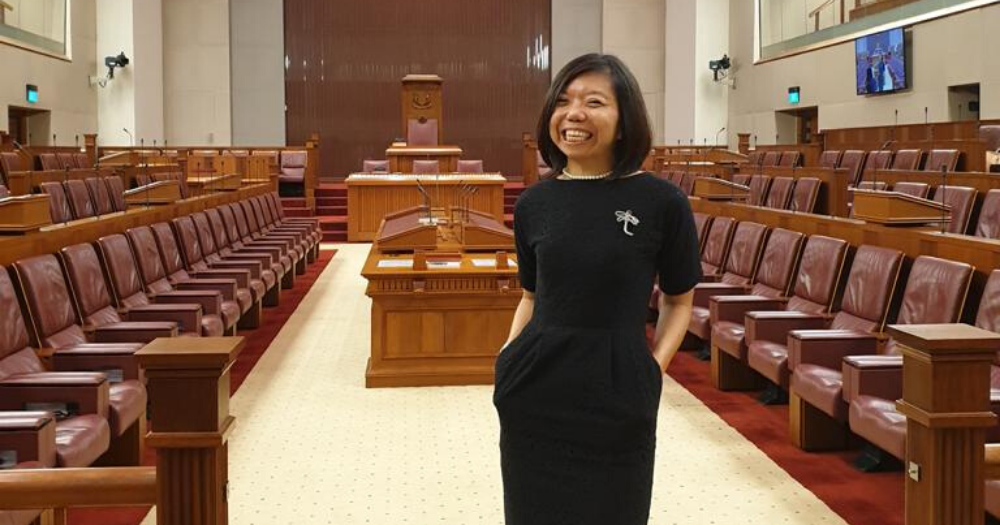[This article is adapted from a previous article "'What a privilege to be able to serve this way': Anthea Ong shares her reflections on being an NMP", which was published on Jul. 20.]
"Every opportunity to me, it's a privilege, it's not an entitlement. And so I always show up completely for it, wholeheartedly for it."
These were enthusiastic words said to me by then-Nominated Member of Parliament (NMP) Anthea Ong over a Zoom call on a Tuesday afternoon in June.
Many people may know her for consistently speaking up about issues surrounding mental health, migrant workers, and other marginalised communities, and — quite notably in the earlier months of 2020 — asking whether the government would consider apologising to the migrant workers for the Covid-19 situation in dormitories.
So why do issues such as mental health mean so much to her, and how has she fought for them?
Grew up when “being a girl was not very welcome”
Ong shared two aspects of her childhood that stood out as “big moments” in her life, which shaped her perspective on the issues she cares about deeply today.
First, being born a girl, "in a time, in a different Singapore, where being a girl was not very welcome.”
Her Chinese name — 王丽婷 — given by her grandfather, reflected this attitude; the third character 婷 (ting) sounds like the Chinese word for “stop”, as it was considered not good that the first two children of Ong’s father, the eldest son in his family, were both girls.
This contributed to Ong's involvement with women’s groups and women issues, she explained.
The second notable aspect of Ong’s childhood was growing up with an eye defect. Her family thought that she was developmentally challenged. She was also teased in school and called names such as "stupid" and "retarded".
Those two moments, she said, greatly influenced who she is now:
"For a long time now, I know why there's always this innate need to understand, but also to speak up for, those on the margin.
Because I was so wanting to be accepted, so feeling rejected, feeling so marginalised for so many years."
Achieving traditional success, followed by collapse
The teasing only stopped once she began studying especially hard and excelling in school, Ong said, culminating in her attaining a business degree at the National University of Singapore (NUS).
After graduation, Ong went into banking, and by 25, she was already the director of an international company:
"So, I did well. It was a very illustrious career I had. In the words of traditional success, I was very successful, very fast and furiously."
And she might have gone on following that path, Ong said, if not for a "major collapse" in her life when she was in her late-30s. A failed business and a painful divorce left her in a deep depression, with only S$16 in her bank account at one point.
"It was such a deep state of despair I was in, with a heart so broken, with a marriage completely in pieces, and along with that, a broken business which was really all of what I was working for...
I did see a psychiatrist who deemed that my depression was not clinical. But the pain was real. It was very dark. It was very deep. At one time I even contemplated the distance between my 18th floor apartment and the ground. That's what we call now suicide ideation."
This extremely difficult part of her life, she said, is what motivates her to speak up for those with mental health issues, those with disabilities, as well as vulnerable and marginalised groups.
"I wasn't just speaking about them because they were trendy or anything, but there was actually a personal context to that, that shaped how important these issues were for me to speak up for in Parliament, and why I have been doing work in these areas in the last 15 years, even before being an NMP."
Becoming socially involved
During that time, Ong began thinking about her values:
"In that pain, that very deep, excruciating pain and suffering, I started to question, you know, what do I want to put my strengths and my gifts to? And what really mattered?"
From there, she started down the path of being deeply involved in the "people sector" over the past 15 years — both as an active volunteer and as a social entrepreneur.
At the time, however, Ong did not have her eye on politics.
She told me:
"Never, ever in my life did I even think for a moment I would be in politics. Not at all!
I mean, people may have dreams and all that. [But] this was so far away from anything I've ever dreamt of!"
Instead, she worked close to the ground, founding and co-founding a number of community projects, including social enterprise Hush TeaBar, Singapore’s first silent teabar to bring silence and awareness to the workplace, and which employs hearing-impaired employees.
She also co-founded A Good Space in 2017, now a co-operative and a community initiative to support social changemakers to raise awareness on social challenges and then coming together to address them ground-up efforts.
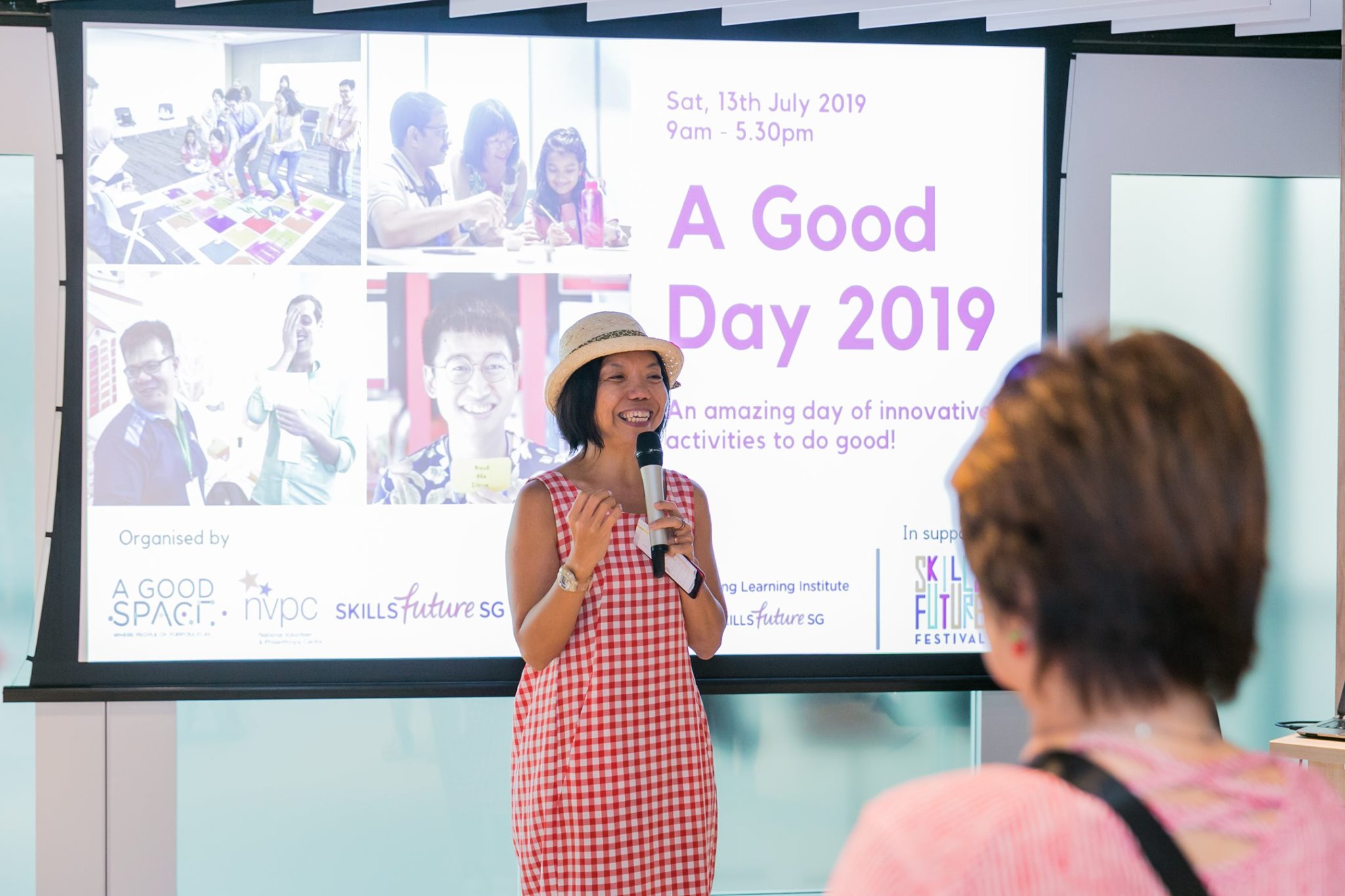 At an A Good Space event. Photo via Facebook / A Good Space.
At an A Good Space event. Photo via Facebook / A Good Space.
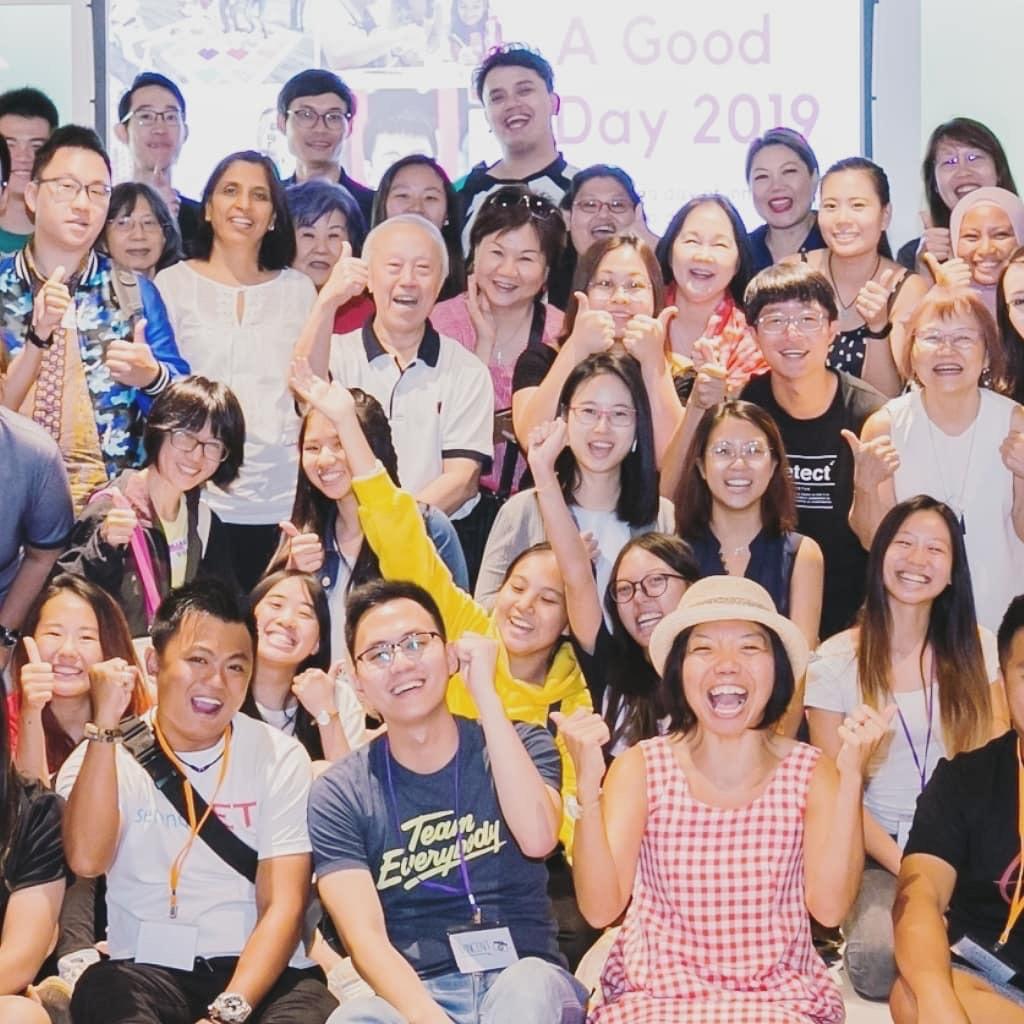 Ong with A Good Space. Photo courtesy of Anthea Ong.
Ong with A Good Space. Photo courtesy of Anthea Ong.
Her experience on the ground introduced her to many social issues — pertaining to mental health, disability, and lower income households — that are, in her words, "so perpetual, they are so eternal".
Approaching these issues had to be done at a policy level, which led to her agreeing to be an NMP in 2018.
Maiden speech and mindfulness exercise
Ong and eight other NMPs were appointed into Parliament by President Halimah Yacob on Sep. 26, 2018.
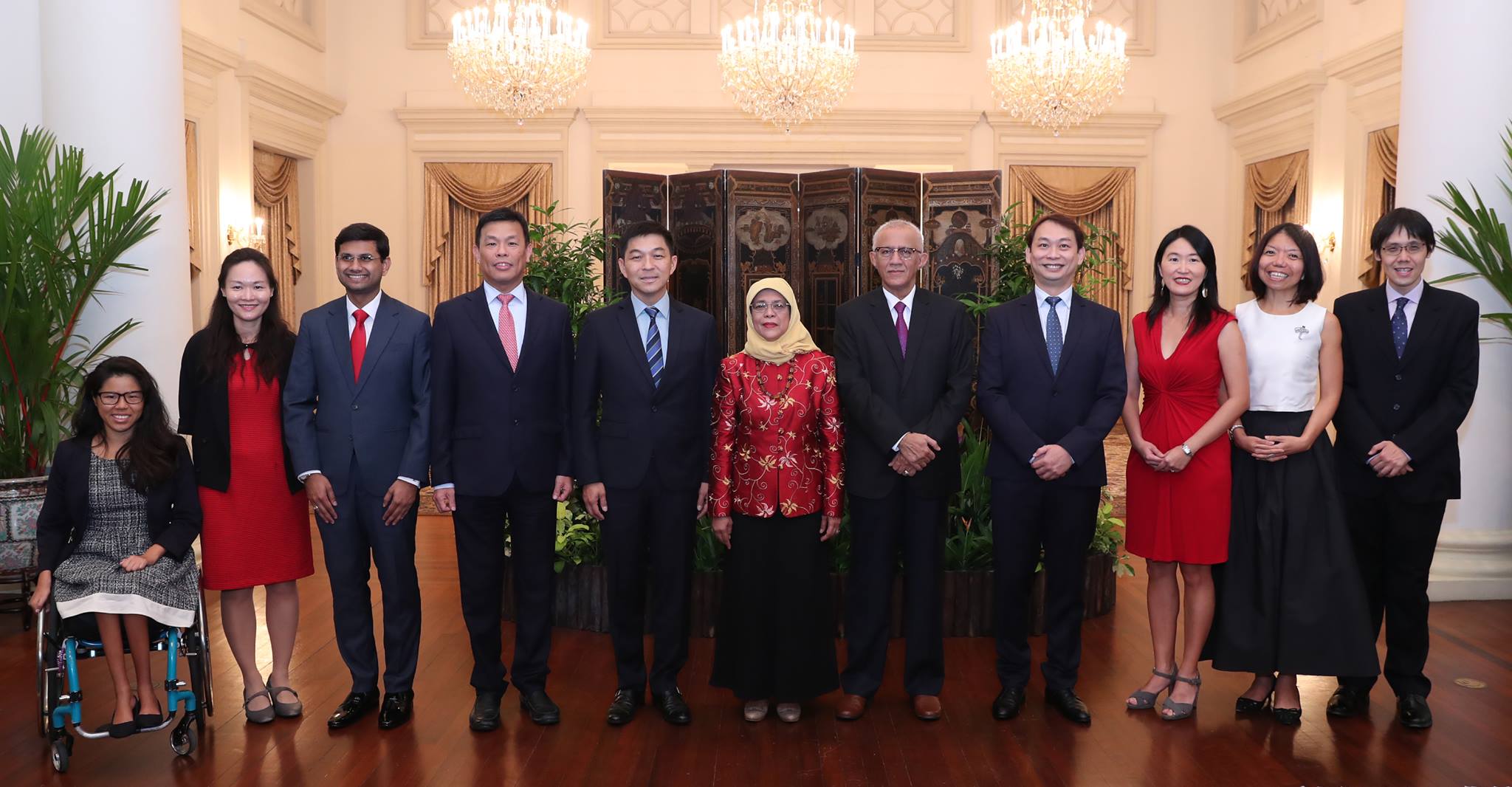 Photo via Facebook / Halimah Yacob (MCI Photo by LH Goh).
Photo via Facebook / Halimah Yacob (MCI Photo by LH Goh).
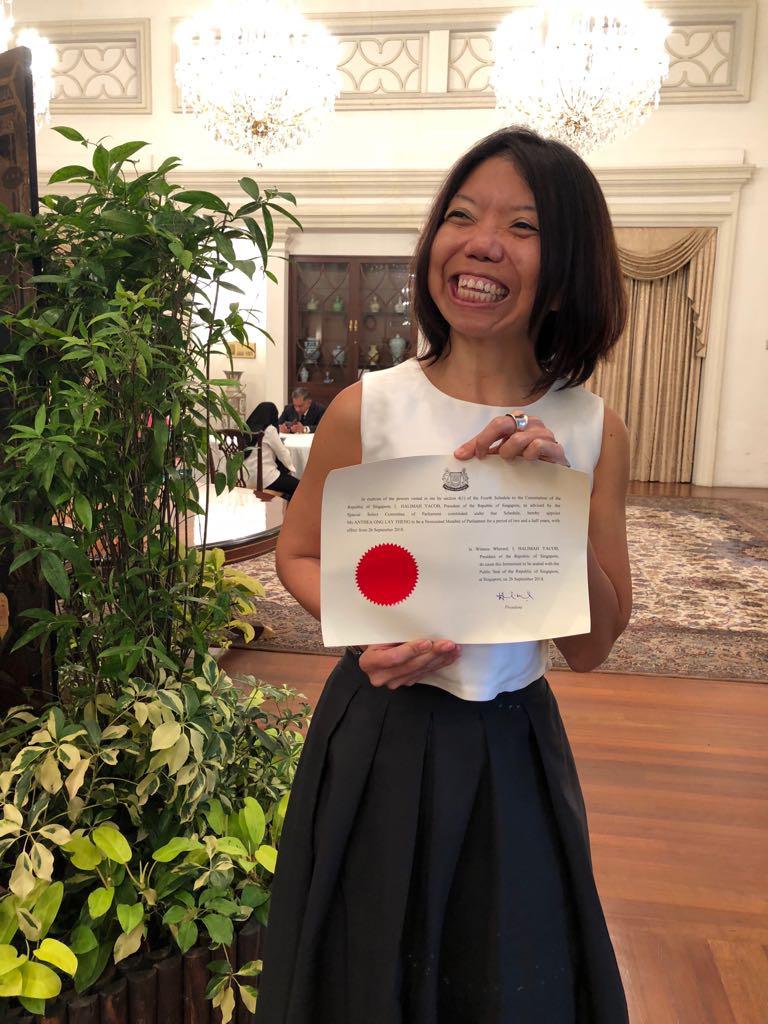 Photo courtesy of Anthea Ong.
Photo courtesy of Anthea Ong.
The NMPs attended their first Parliament on Oct. 1, 2018.
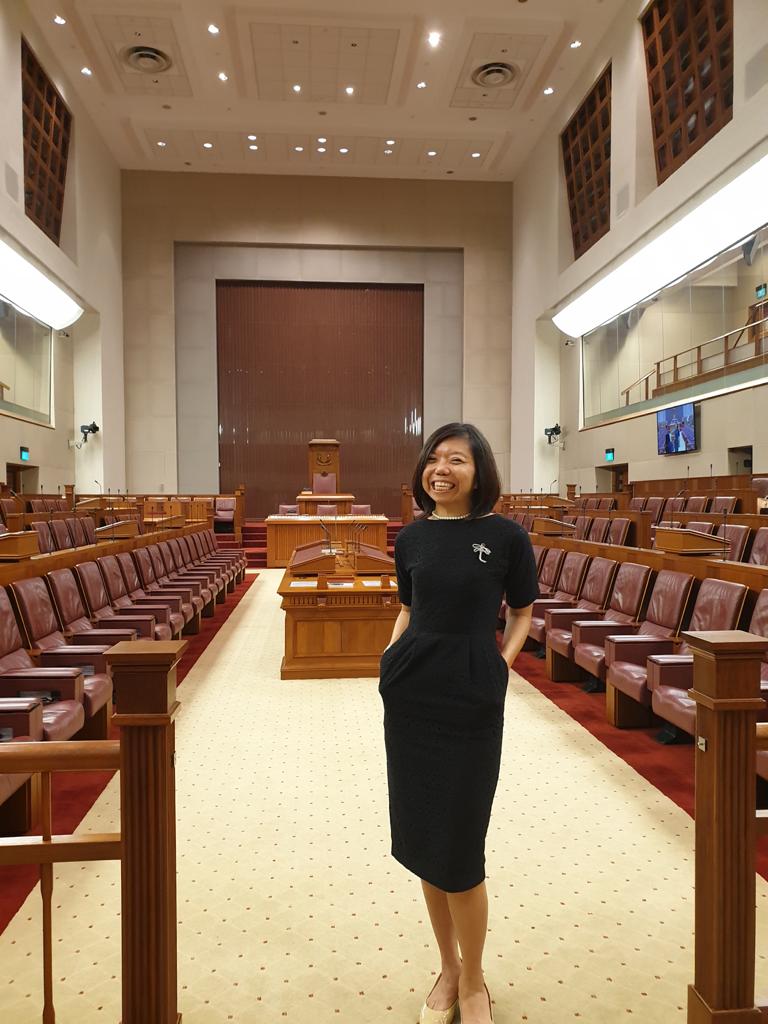 Ong at her first sitting of Parliament, before the sitting convened. Photo courtesy of Anthea Ong.
Ong at her first sitting of Parliament, before the sitting convened. Photo courtesy of Anthea Ong.
While Ong didn’t speak in her first sitting, the bill being discussed during the second sitting was right up Ong's alley: an Employment (Amendment) Bill.
"Voilà! It's meant to be!", she said of the coincidence.
In that debate, Ong spoke about mental well being at the workplace, and pushed for changes to the Workplace Health and Safety Act, advocating for the inclusion of psychosocial health and safety on top of the physical aspects — including for our migrant workers.
The most momentous part of that speech, which Ong says will "always go down in history" for her, was when she opened her maiden speech by asking the entire Parliament to do a mindfulness breathing exercise with her.
"It was something I was so, so worried [about] if I was out of line, but I was so compelled to. There was something in me that said we should, and it was so powerful, because you could literally hear, for that 10 seconds or so, complete silence in the chamber and just the sounds of breathing."
On one hand, she said, the exercise was helpful to herself, given that it was her first speech in Parliament. On the other hand, Ong, who has been practising twice-daily meditation for 15 years, wanted to bring her true self into her role:
"I really wanted, you know, to bring my most authentic self to the hallowed chamber, which is [that] we must be here with the fullest presence, because what we do in this chamber affects every Singaporean, as well as the planet."
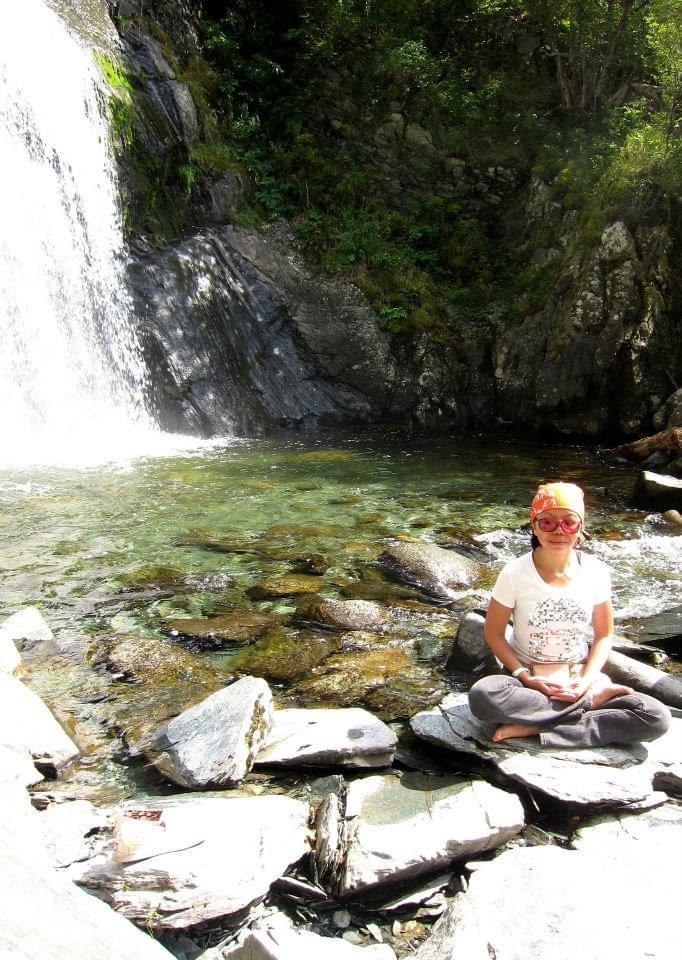 Ong meditating by a waterfall. Photo courtesy of Anthea Ong.
Ong meditating by a waterfall. Photo courtesy of Anthea Ong.
Purpose is to give voice to others
Many of the issues that Ong brought up in Parliament were deeply influenced by her past, she said, both in terms of her own life and the issues she has seen from her work on the ground.
Between Oct. 2018 and Feb. 2020, Ong spoke up at every single Parliament sitting; she filed 92 parliamentary questions and spoke on 23 bills.
She dedicated her speeches for both the Budget 2019 and the Budget 2020 debates toward talking about mental health issues and improving mental health support.
She also filed an adjournment motion about mental health and suicide in Singapore, which she spoke about in Parliament on Mar. 25.
Ong and a team also conducted a public consultation on mental health that received more than 400 responses. The public consultation looked at the affordability, accessibility, and quality of mental health support in Singapore.
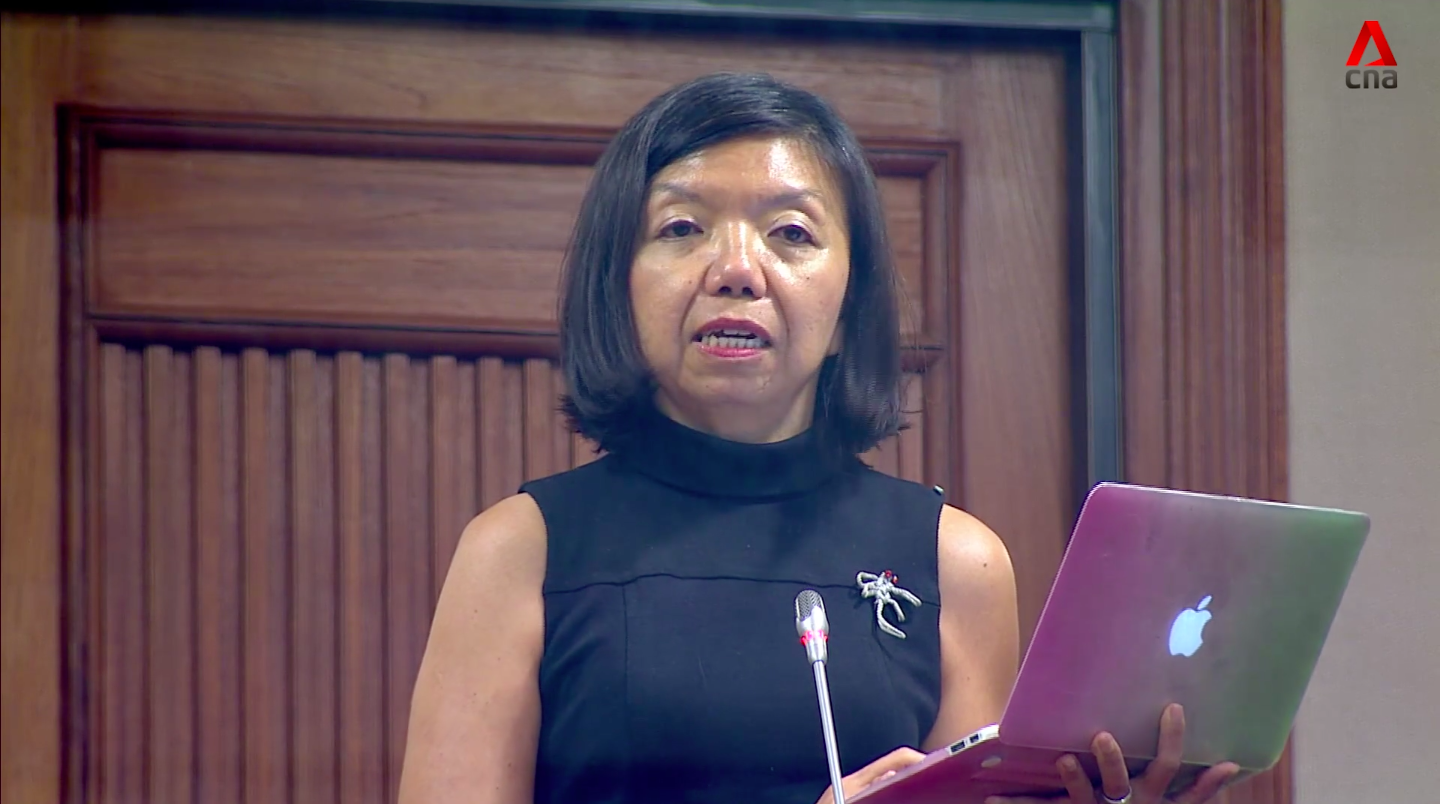 Ong speaking in Parliament. Photo via CNA.
Ong speaking in Parliament. Photo via CNA.
Asking uncomfortable questions and dealing with "haters"
Perhaps one of the biggest adjustments in becoming an NMP was dealing with trolls, haters, and criticism.
Ong emphasised that she is open to discussions with those who hold different views, as this makes our society more colourful, richer, and more informed.
However, she will never entertain "haters" or "smearers":
"To say that it doesn't affect me, that's just lying. But does it affect me in a way that just cripples me or paralyses me? No, it doesn't...
... I'm not looking for votes. I'm not trying to be a celebrity. I definitely, right now, know I'm loved enough by the people who matter to me that I'm not looking for more love."
And when Ong encountered nasty comments, or felt fearful, she reminded herself about why she was doing it: "To be able to sort of speak truth to power but also to choose courage over comfort", she said.
Ong felt that speaking up on controversial issues would be a responsibility she owed, which she needed to fulfil.
"But more importantly, there's also all those voices and all the people who I know who have come forward, who have entrusted their issues and their voices with me."
Reflecting on her impact and time as an NMP
In all, Ong's journey as an NMP has contributed to personal growth.
"It's been [so] phenomenal in terms of learnings. It's been so much personal growth.
I think being an NMP has tested me even more in my own practice of staying in truth, in integrity, and in humility. So it's not always been easy but there's been so much personal growth.
She also "tried [her] very best to spread the love" by sharing her NMP platform with many different community groups.
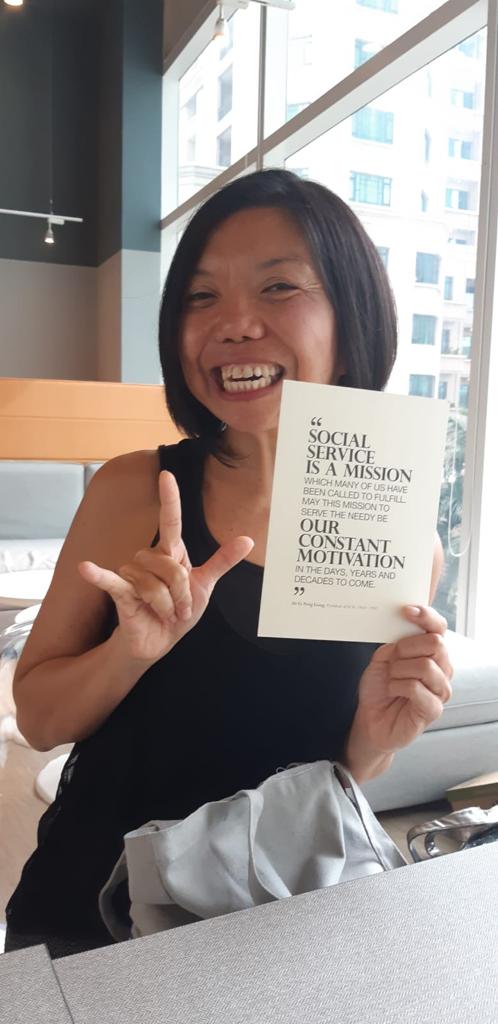 Ong spreading the love, via sign language. Photo courtesy of Anthea Ong.
Ong spreading the love, via sign language. Photo courtesy of Anthea Ong.
While Ong acknowledged critiques of her work being too idealistic, she saw it differently:
"It doesn't come from a place of idealism at all, because I've come from 30 years in the business world, so I will tell you that I'm definitely not... at least, not a career idealist, lah.
But I do love this country. I love the people. and I think that when Tommy Koh talked about the critical lovers and the loving critics, I resonated with that. Because being a critic comes from so much love.
And that love doesn't mean that I don't recognise what's good in where we are — you know, all the good in the government and all the good in in our system and all the good in our society, in life."
Stories of Us is a series about ordinary people in Singapore and the unique ways they’re living their lives. Be it breaking away from conventions, pursuing an atypical passion, or the struggles they are facing, these stories remind us both of our individual uniqueness and our collective humanity.
Totally unrelated but follow and listen to our podcast here
Top photo courtesy of Anthea Ong.
If you like what you read, follow us on Facebook, Instagram, Twitter and Telegram to get the latest updates.
